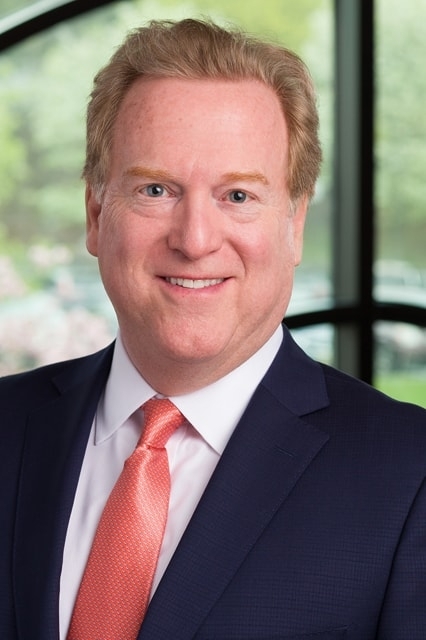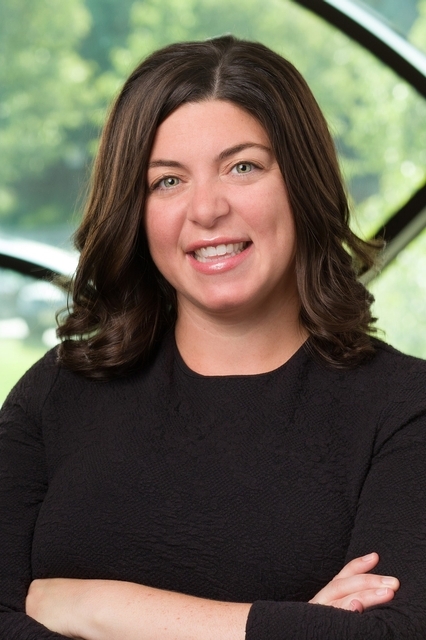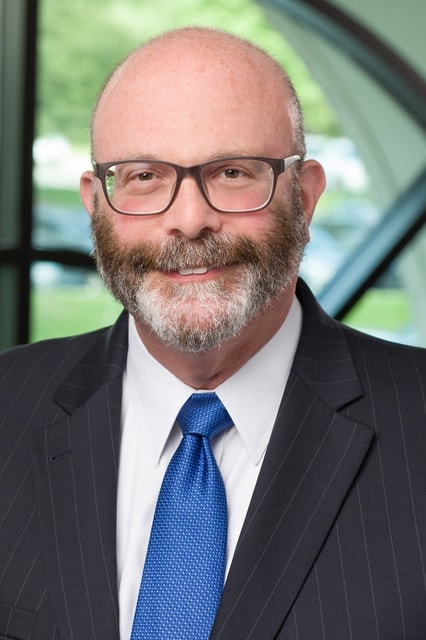June 2, 2021
New Jersey Law Journal: Intergenerational Real Estate Practice Leaders Discuss New Remote-Work Paradigm
As we seem to be nearing the end of the COVID-19 health emergency, there has been much discussion on the impact of the current “socially distant” circumstances on the traditionally in-person practice of law—a culture ever-more-present in real estate practice—and how firms will navigate the “new normal” once we get there.
With this in mind, I brought together Gemma M. Giantomasi and Jeffrey M. Gussoff, Co-Practice Group Leaders of the Real Estate, Development & Land Use Group, for a discussion on this very topic and how they envision the practice managing the uncertain road ahead.
As the Group’s chair, I look to our co-PGLs as drivers of the operational aspects of our practice, handling everything from client intake to mentorship and workload management, in addition to their day-to-day client activities. While they sometimes approach these responsibilities from different perspectives given their respective backgrounds and tenures, the key takeaways from my discussion with them, which follows, seemed to interestingly intersect at various points.
Mitchell S. Berkey: How have each of you adjusted to the current environment from a practice management perspective?
Gemma M. Giantomasi: We quickly adapted by creating pods within the group based on different areas of practice and another pod for our paralegals and top administrative professionals. Each pod has a leader that runs virtual weekly meetings and each pod leader reports in on a weekly call with the other pod leaders, department leadership and executive committee member, Frank Giantomasi.
The pod calls started in March 2020 to troubleshoot issues and share remote practice basics but quickly transitioned into sessions where we focus on substantive real estate matters. These interactions have also served as an opportunity for department members who are not only colleagues, but also friends, to connect and have become integral in maintaining the collegiality of the firm and our group during this experience. We have used these pods to successfully navigate virtual practice management and even share television series. We complement these pod meetings with monthly departmental and practice group leader meetings, as well as virtual social events for the Group.
Jeffrey M. Gussoff: We are working very hard, particularly in the Real Estate Department, to maintain our unique culture. What was second nature to us in-person requires deliberate thought and action in a remote environment. Those of us who work with and mentor junior attorneys and lateral hires make concerted efforts to be in contact with them regularly. Our firm has always been great at allowing everyone to adapt to changing circumstances. For me, being home allows me to get out, walk the dogs and take a break from the computer.
MSB: From your vantage point as the Group’s operational leaders, what is the general “state of the practice”? Growing? Holding steady?
GMG: The state of the practice is growing! Since work-from-home began, we have successfully onboarded six new attorneys including associates and members. We have continued to train new attorneys, and those who started with the firm shortly before remote work, through virtual means together with limited in-office meetings, as required, to sustain our growth and strength.
JMG: Even in a pandemic year, we saw an upward trend across our sub-practices—which include acquisitions and sales, lending, land use, development and leasing, as well as others such as hospitality and liquor licensing—with occasional leveling-off for short periods during the year in some of the niches. For several of our transactional clients, the pandemic created opportunities as they found properties to buy at advantageous prices. This has continued throughout the year. Our landlord and tenant clients initially kept us busy with workouts, but that soon transitioned back into conventional leasing activity. Lending has been a combination of loan modifications and new loans of all sizes, with an incredible year-end push by our lending clients to close loans in their respective pipelines. Land use has been steady to very busy most of the year after municipalities started holding virtual meetings. The other specialty areas have been busy as well. No wonder we added so many new attorneys.
MSB: How has the team continued to connect with clients and external contacts despite the socially distant circumstances?
GMG: The practice continued to participate in virtual industry networking opportunities. As the world began to reopen recently, the practice quickly pivoted to continue its development efforts with creative, outdoor, socially distanced client development lunches, dinners, meetings and events. Importantly, the pandemic experience has brought us closer with existing clients both personally and professionally, as we have helped them cope with the difficulties they and their families faced over the past year. To that end, relationships with current clients have only strengthened.
JMG: I spend time on the phone with clients, regularly keeping in touch. For new clients, having Zoom on tap has been an extraordinary resource for face time. It’s the next best thing to being in a room together.
MSB: How have current circumstances affected attorneys? Clients? The greater practice of real estate law?
GMG: I remember sitting in the office the night of March 16 in a panic over how a largely in-person real-estate practice was going to become a virtual practice overnight. How were we going to handle closings, which had historically been handled in-person, via mail? While commercial purchase and sale transactions have been trending toward closing by mail, end sale closings for condo developments and loan closings were still handled in-person leading up to the pandemic’s onset. Our team quickly banded together and transitioned these closings to mail format literally overnight. While I never thought that these types of closings would lend themselves to the mail format, thanks to nimble title companies (the industry that is comprised of truly unsung front line workers), amazing, flexible clients, and our great real estate team the transition seemed effortless. Now that we see the benefits and efficiencies of handling these closings by mail for lenders, borrowers and buyers, I think that mail format closings are here to stay. While, I love a good old-fashioned, in-person closing, I think it is “good-bye” to the days of adversaries and their counsel waiting for hours on end for wires to hit.
JMG: The major benefit to working remotely is time. Not having a commute can result in greater productivity for lawyers and staff. For clients, remote meetings and hearings eliminate drive-time and other downtime, which is great for busy clients. This also saves on lawyer time, which can result in lower fees. The next best benefit is flexibility. Stepping away for a few minutes a few times a day is easier working remotely than in the office, and can help with concentration and creativity (yes, lawyers can be creative).
There are some detriments to working remotely. It takes a real effort to “leave” work. As professionals, we are and have always been very available to clients. This is second nature to most of us, but when work and home are the same place, it’s harder to create that distance. I’ve practiced long enough to recall people saying the same about cell phones. Our firm does a great job at helping lawyers and staff create real work-life balance, but we take an interest in our clients and pride in what we do, so sometimes it’s hard to stop working.
On some issues, it isn’t clear to me whether there are more plusses or minuses. Closings, for example, can be quicker and more efficient in person, chiefly because all participants are committed to the job at hand. I find that remote closings take longer because people can multi-task, so receiving return phone calls or email responses can take longer than speaking with someone across a table. This dynamic may not hold for closings that require travel; waiting around for a wire transfer is easier to handle remotely instead of pacing around the conference room. Also, New Jersey is famous for the two-hour drive to the one-hour meeting or closing. Whether to appear in-person or by Zoom may be a function of the size of the deal, the anticipated time for the closing (shorter closings are better done remotely), and the distances each participant needs to travel.
The other issue of concern, and I’ve heard other lawyers comment on it as well, is how do we train newer lawyers in a remote environment? On balance, we are doing a good job at this now because we understand the issues and work to overcome them. Our young real estate lawyers will become terrific lawyers, because they want to be the best lawyers they can be, and we will mentor them and provide the necessary training to help them achieve that goal.
MSB: There seems to be a light at the end of the tunnel with regard to the health emergency. How is the practice preparing for a return to more typical, in-office/person operations now?
GMG: The practice has been running efficiently from home, so there is no rush to return to the office, and, surprisingly, it looks like the return may be harder than the initial conversion to a remote environment. While I have enjoyed working from home thanks to great support and technology from the firm, I do miss my work family and look forward to returning to the office once it will be safe and comfortable to collaborate in-person. I look forward to the day when I can mark up a contract, a title commitment or a survey in a conference room with a colleague and then head downstairs to share a few laughs over lunch!
JMG: I’m not sure we will return to “typical” because ours is not a typical law firm. We’ve learned to be very flexible the last 14 months, and our technology infrastructure is now more than ready to allow us to work from anywhere.
The old distinctions of full-time and part-time referring to the hours spent in the office just don’t apply any longer. Each of us will work where it’s most efficient, whether that’s answering phone calls or drafting at home or having team meetings in the office. The type of work will define where we work, not the other way around.
MSB: Thank you both for your insights and pace-setting leadership. The past 14 months have presented unique challenges which, together, we have worked diligently to overcome.
Reprinted with permission from the June 2, 2021 issue of the New Jersey Law Journal. © 2021. ALM Media Properties, LLC. Further duplication without permission is prohibited. All rights reserved.



